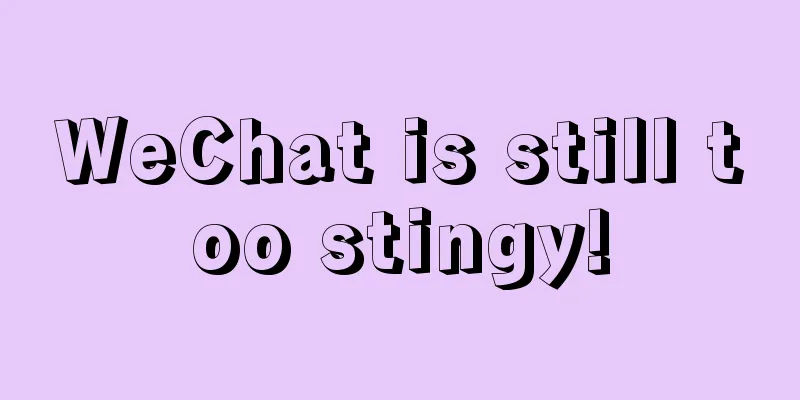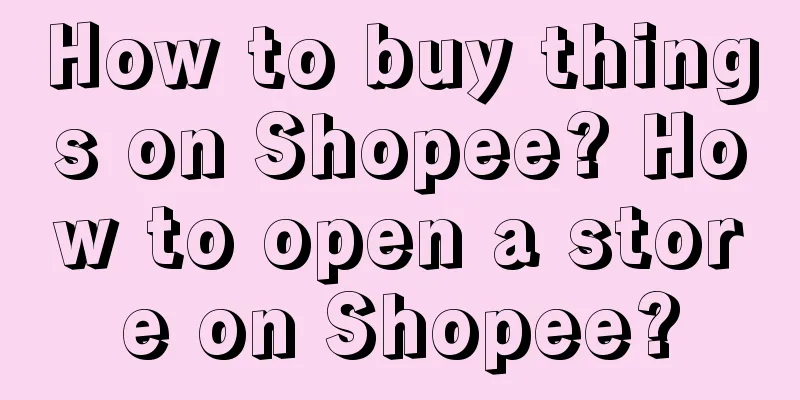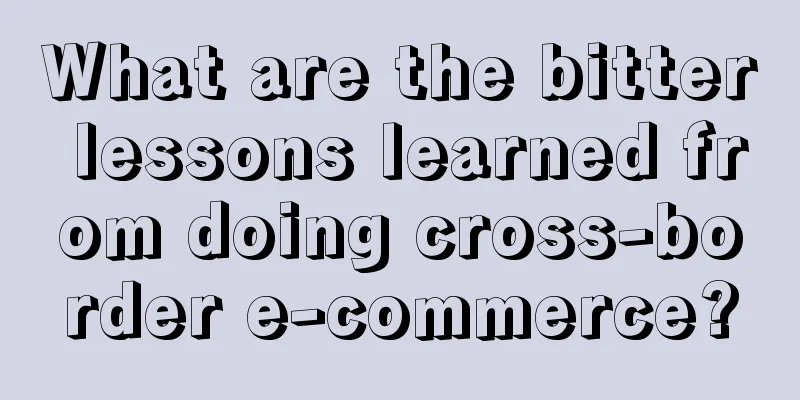WeChat is still too stingy!

“No one can get rich quick on WeChat” WeChat, which has the only "all-people, all-scenario" traffic in China, is still too stingy. "Too little given, too much control" This is the evaluation given by many merchants on WeChat’s e-commerce. According to rumors in the Dayu Private Circle community, a large number of top talents and top merchants have begun to "escape". From going all-in on Video Account to returning the business focus to Douyin, working on Video Account "part-time" is the signal I got from in-depth communication with some top influencers in the past one or two months. Difficulty in breaking the circle, unstable traffic, lack of support... and other problems are highlighted, showing that the monetization system of video accounts is not friendly to top influencers. Repeated attempts, repeated disappointment. This may be a summary of WeChat traffic by top influencers, and it is also the true situation of various bugs in the early development of WeChat e-commerce. Some thoughts today:
01 It’s really hard to break the circleThe meaning of being "stingy" is not that you are poor, but that you are rich but unwilling to give. I have seen it several times recently. Brother Long said in public that WeChat will not choose "simple traffic monetization" but will choose kindness. He has the confidence to say this, because WeChat has no shortage of traffic, so it is "qualified" to choose kindness! This sentence translates to Jack Ma saying "I am not interested in money." Serious, yet full of comedic irony. But how does such a "rich landlord" with so much traffic control himself? On Video Account, the likes and interaction rates of short videos in most categories are less than 10% of that of Douyin. That is to say, for the same content, your ability to obtain traffic is 10 times lower. Similarly, the video account live broadcast room has more restrained traffic, and so far WeChat has not been able to disclose the number of online users in the live broadcast room. Because there are too few! “Seen”, that is, more than 10,000 viewers, is already a good result. Knowledge and e-commerce live broadcast rooms with hundreds of people online are already top live broadcast rooms. For merchants, the ability to acquire customers with the same cost is 10 times different. However, recently, things have gotten even worse. WeChat has implemented stricter management of rules such as banned words, private domain traffic diversion, and induced interaction, resulting in the ineffectiveness of various live broadcast room techniques and further weakening the traffic of the top live broadcast rooms.
So, where does the traffic go? 02 The underlying reason for being stingyWeChat public domain traffic, whether it is short videos, live broadcasts, or official accounts, is essentially about obtaining traffic through high-quality content and then monetizing it. Therefore, high-quality content is the basis of traffic. In theory, good content is liked by everyone, so it should penetrate the grid distribution mechanism of WeChat and break the circle to become a super hit. This is a better thing for users and content creators. In the long run, WeChat prefers grid distribution: 1. Try to bring traffic to mediocre content.In the distribution of video account traffic in the past few years, recommendations from WeChat friends were placed at an important entrance. But in reality, the content posted by acquaintances about their children, work, and personal life will not fail to attract attention even in the circle of friends, and has no value in public domain distribution. Until now, the video account on the discovery page will still display the content in which friends have clicked the red heart, enticing you to enter. If a friend clicks the red heart button, does that mean the content is high-quality? Obviously not. This results in a situation where a large portion of the content users see is low-quality, and users are unable to form stickiness and spread the content. 2. On the other hand, high-quality content is suppressed.The first action is the "100,000+" invented in the era of official accounts. This is an effective way to suppress high-quality content from obtaining super traffic. Views above 100,000 will not be displayed, in order to reduce the user's perception as much as possible and avoid the herd effect, thereby cooling down the popular content. The second action is to apply social pressure. What is high-quality content? It is what users like to watch. But just because users like to watch doesn’t mean they are willing to let others know that they like to watch it! Social pressure has resulted in opinion-based and entertainment-based content being unable to gain traffic, and users are extremely reluctant to interact, but this type of content is a very core demand of users. The thumbs up signifies a like, while the red heart signifies a retweet. In the past few years of the video account, double-clicking the screen defaults to forwarding, which has caused users to be very cautious and afraid to interact. They are under tremendous social pressure and are afraid that others will know their "little fun". Recently, it was modified that double-clicking the screen is a thumbs up gesture, eliminating the social pressure. This small change has increased the popularity of high-quality content many times. A deeper question is: Why must the distribution of short videos take into account social interaction among acquaintances and the concept of everyone being able to participate? Can killing the rich and helping the poor and suppressing the top traffic support the elderly, the weak and the sick? This is a philosophical question, and Mr. Ma Yun said it very well: Even if you kill the village landlord, you won’t become rich! 03 Preferred UtopiaA few days ago, the leader of a group connection department added me on WeChat and asked me how to make a good video account. His idea is to incubate the tens of thousands of small and micro group leaders who follow him to sell goods into video account experts to continue helping him sell goods. In fact, this logic does not hold true.
Small and micro influencers do not have the ability to break the circle of content, so they cannot make money in the public domain; and the top influencers in the public domain do not pay much attention to the private domain because the monetization efficiency of the private domain is not as high as that of the public domain. These are two ecosystems and two models. The same is true for WeChat. If you want to create a video account content ecosystem, you should follow the logic of public domain traffic. Taking into account both acquaintances and small and micro individuals may simply be a value preference rather than the essence of the business. From the official account’s message of “No matter how small an individual is, he or she can have his or her own brand” to “Everyone can start a small business”. "Small individuals" and "everyone" are pointing to the values of WeChat, trying to enable more people to make money for a longer period of time, rather than indulging traffic oligarchs and super celebrities. However, "everyone can do it" is a utopia. Can something that has been proven to fail countless times throughout history really be achieved on WeChat? Ideal fullness, The real world may be a mess. |
<<: Recent observations: Fancy ways to pay for knowledge
>>: Luckin Coffee’s pun copywriting is new again!
Recommend
The best private domain looks like: there are catering membership cards with hundreds of millions of sales
This article introduces how to expand the micro-sh...
What are the negotiating skills of Alibaba International Station’s account managers?
If you don't want to open a store on Alibaba I...
How can I change the mobile phone number bound to Facebook? Can I change my Facebook username?
Binding your phone number is one of the important ...
5 ads that boldly talk about life and death
This article tells how five brands use Qingming Fe...
Can Facebook sell products? Can it sell virtual products?
Facebook, also known as "Facebook", has ...
Uncovering the hidden links of Zhihu tweets
More and more people are looking for side jobs bes...
For large companies, your competitive advantage lies in this...
This article mainly talks about how small and medi...
Is it easy to do business in Thailand? What sites does Shopee have?
As one of the leading e-commerce platforms in Sout...
Can I modify the price after listing on Shopee? How to set up discounts?
As e-commerce platforms continue to grow, more and...
Social Marketing: A fission activity, 20,000 followers, but 0 conversion rate? Here are the reasons
In the stock era, traffic has become a scarce thin...
How do I fill in the shein address? How do I return a product?
With the rapid development of fashion e-commerce, ...
What is the meaning and function of Amazon advertising portfolio?
Everyone will place Amazon ads. When placing ads, ...
In the years of game community operation, I summarized these
Editor's note: "Nowadays, more and more p...
How to use Shopee Zhixia? What are the tips?
Since the launch of Shopee cross-border e-commerce...
How to join Shopee cross-border e-commerce? What are the conditions for joining?
With the development of cross-border e-commerce pl...









